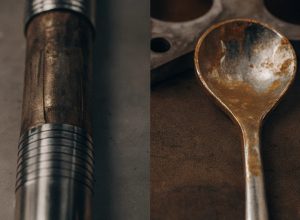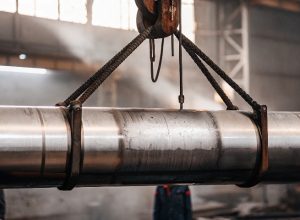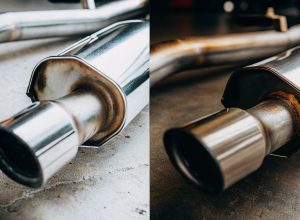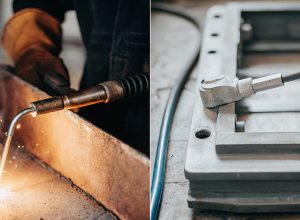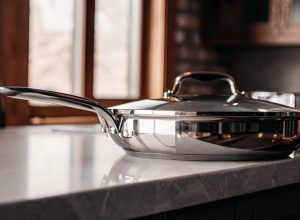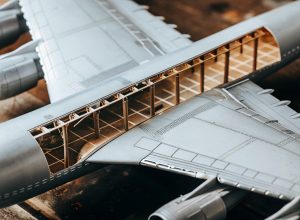Choosing the wrong metal for a corrosive job1 causes costly failures. Your project is at risk. Let’s compare two top contenders to find the best long-term solution.
Titanium generally resists corrosion better than stainless steel, especially in saltwater and chemical environments. It forms a stable, protective oxide layer2 that regenerates instantly if scratched, offering superior long-term durability.
The answer seems simple, but it’s not always black and white. Many factors, like the specific environment and the exact alloy, play a huge role. I’ve seen clients like Ahmed, a distributor in Turkey, save thousands by understanding these details. He needs to know which grades to stock for his small manufacturing customers. Making the right choice depends on digging deeper into the specific questions you might have. Let’s break it down further to help you choose wisely for your own needs.
Is titanium or stainless steel more corrosion resistant?
Worried about parts failing from rust or chemical damage? One failure can halt operations. Knowing how each metal protects itself is key to choosing the right one.
Titanium is more corrosion resistant than stainless steel in most aggressive environments. While stainless steel relies on chromium for protection, titanium’s passive oxide layer is more robust and self-healing.
I often explain this to clients by focusing on how each metal protects itself. It’s all about the surface layer. Stainless steel has a thin layer of chromium oxide. It’s good, but it can be broken down by certain chemicals, like chlorides found in saltwater. Once it’s breached, pitting corrosion can start. Titanium, on the other hand, forms an extremely stable and tough titanium dioxide layer. If you scratch it, this layer instantly re-forms as long as there’s a trace of oxygen or water. This self-healing ability is why it excels where stainless steel might fail. I once helped a client in the marine sector switch from 316L stainless to Grade 7 titanium for some critical pump components. The stainless parts were failing in less than a year. The Grade 7 and 11 titanium parts are still going strong after five.
The Protective Layer Explained
The key difference is the nature of this protective film. Stainless steel’s chromium oxide film is effective, but it has its limits. In environments with low oxygen and high chlorides, like seawater crevices, it can break down and fail to repair itself.
Performance in Specific Environments
Titanium’s titanium dioxide layer is far more tenacious. It’s why we see it outperform stainless steel so consistently in highly corrosive marine and chemical environments.
| Environment | Stainless Steel (316L) | Titanium (Grade 2/7) |
|---|---|---|
| Saltwater | Prone to pitting/crevice corrosion | Excellent resistance |
| Chlorine | Susceptible to cracking | Highly resistant |
| Strong Acids | Limited resistance | Good to excellent (depends on grade) |
| General Atmosphere | Good resistance | Exceptional resistance |
What is the best metal to resist corrosion?
You need the ultimate material against corrosion. Choosing "good enough" is a risk. Let’s look at the top performers to find a truly reliable solution for you.
For most practical industrial and marine applications, titanium and its alloys are often the best metals for corrosion resistance. However, noble metals like platinum and gold are technically more inert.
When a client asks me for the "best" metal, I always ask, "Best for what, and for what budget?" Technically, noble metals like gold and platinum are almost completely immune to corrosion, but you can’t build a chemical processing plant out of them. For real-world engineering, we have to balance performance with cost. That’s where titanium shines. It offers near-noble metal performance at a fraction of the cost. I remember helping Ahmed source materials for a client making medical implants. We selected Grade 23 titanium (a high-purity alloy also known as 6AL4V ELI) because of its excellent biocompatibility and extreme resistance to corrosion from bodily fluids. It was the perfect "best" for that specific job. He now stocks it regularly.
The "Best" Depends on the Job
The most corrosion-resistant metal might be unaffordable or lack the required mechanical properties. The optimal choice is always a balance of performance, workability, and cost for a specific application.
Top Contenders for Industrial Use
Here’s a look at some top-tier options for demanding industrial jobs.
| Metal | Key Advantage | Common Application | Relative Cost |
|---|---|---|---|
| Titanium | Excellent strength-to-weight, superior corrosion resistance | Aerospace, Medical, Marine | High |
| Tantalum | Incredible chemical resistance, especially to acids | Chemical processing, electronics | Very High |
| Hastelloy3 | Resists a wide range of corrosive media | Chemical reactors, exhaust scrubbers | Very High |
| Stainless Steel | Good all-around performance, lower cost | General construction, food processing | Medium |
Which is better, titanium coated or stainless steel?
Titanium-coated steel seems like a cost-effective option. But a scratch can expose the steel underneath to rust, defeating the purpose. Let’s see what’s truly better.
For critical applications requiring long-term reliability, solid titanium is always better than titanium-coated stainless steel. A coating provides only surface protection, which can be compromised by scratches or wear.
A titanium coating, usually titanium nitride (TiN), is applied through a process like PVD. It creates a very hard, thin layer on top of the stainless steel. This is great for things like drill bits, where you need surface hardness, or decorative items. However, it’s just a skin. I work with many clients in offshore engineering, and they would never trust a coated material for a submerged part. A single scratch from an impact or even just constant wear can expose the stainless steel below. In a saltwater environment, this is a recipe for disaster. Galvanic corrosion can even accelerate the failure at the point of the scratch. For anything where failure is not an option—like a valve in a chemical pipe or a structural part4 on an oil rig—my clients always prefer solid titanium components. It’s about long-term integrity, not just surface-level protection. The material’s resistance goes all the way through.
Understanding the Coating Process
A coating is a surface treatment. It does not change the properties of the base metal. While it adds a layer of protection, it is not a substitute for a solid, inherently corrosion-resistant material.
The Weakness of a Coating
The primary weakness is its potential for damage.
- Scratches: Physical impact can easily breach the thin layer.
- Wear: Over time, friction can wear the coating away.
- Delamination: Poor bonding can cause the coating to peel or flake off.
Once the coating is gone, the underlying stainless steel is left to fend for itself.
What lasts longer, titanium or stainless steel?
The upfront cost of titanium is higher than steel. But what if the cheaper option costs you more in the long run with constant replacements? Let’s check the lifetime value.
Titanium almost always lasts longer than stainless steel in environments where corrosion is a major factor. Its superior resistance to pitting, crevice corrosion, and general degradation means fewer replacements and a longer service life.
This is a conversation I have almost every day with procurement teams. They see the per-kilogram price of titanium and compare it to stainless steel, and the steel looks cheaper. But that’s not the whole story. I encourage them to think about the Total Cost of Ownership (TCO). A stainless steel part might be cheaper initially, but if you have to replace it every two years due to corrosion, the costs add up quickly. You have the cost of the new part, the labor to install it, and the expensive downtime of your operation. A titanium part, which might last 10, 15, or even 20 years in the same environment, becomes much cheaper over its lifespan. One of my international customers in the chemical processing industry shared their data. They found that switching to our titanium rods and plates for their heat exchangers completely eliminated biennial shutdowns for replacements, resulting in far lower long-term costs.
Total Cost of Ownership (TCO)
TCO includes not just the initial purchase price, but all costs over the component’s life, including maintenance, downtime, and replacement.
Comparing Lifetime Costs
When you factor everything in, titanium often comes out ahead in demanding situations.
| Cost Factor | Stainless Steel Component | Solid Titanium Component |
|---|---|---|
| Initial Purchase | Lower | Higher |
| Service Life (in corrosive environment) | 1-3 years | 10-20+ years |
| Replacement & Labor Costs | High (recurring) | Very Low (or none) |
| Total Lifetime Cost | High | Lower |
Conclusion
In the fight against corrosion, titanium is the clear winner for durability and long-term value, especially in tough environments. Making the right choice saves money and ensures reliability.
-
Understanding the risks can help you avoid costly failures in your projects. ↩
-
Learn about the science behind protective layers and their importance in metal selection. ↩
-
Learn about Hastelloy’s unique properties and its applications in challenging conditions. ↩
-
Learn about the best materials for structural integrity in challenging conditions. ↩







